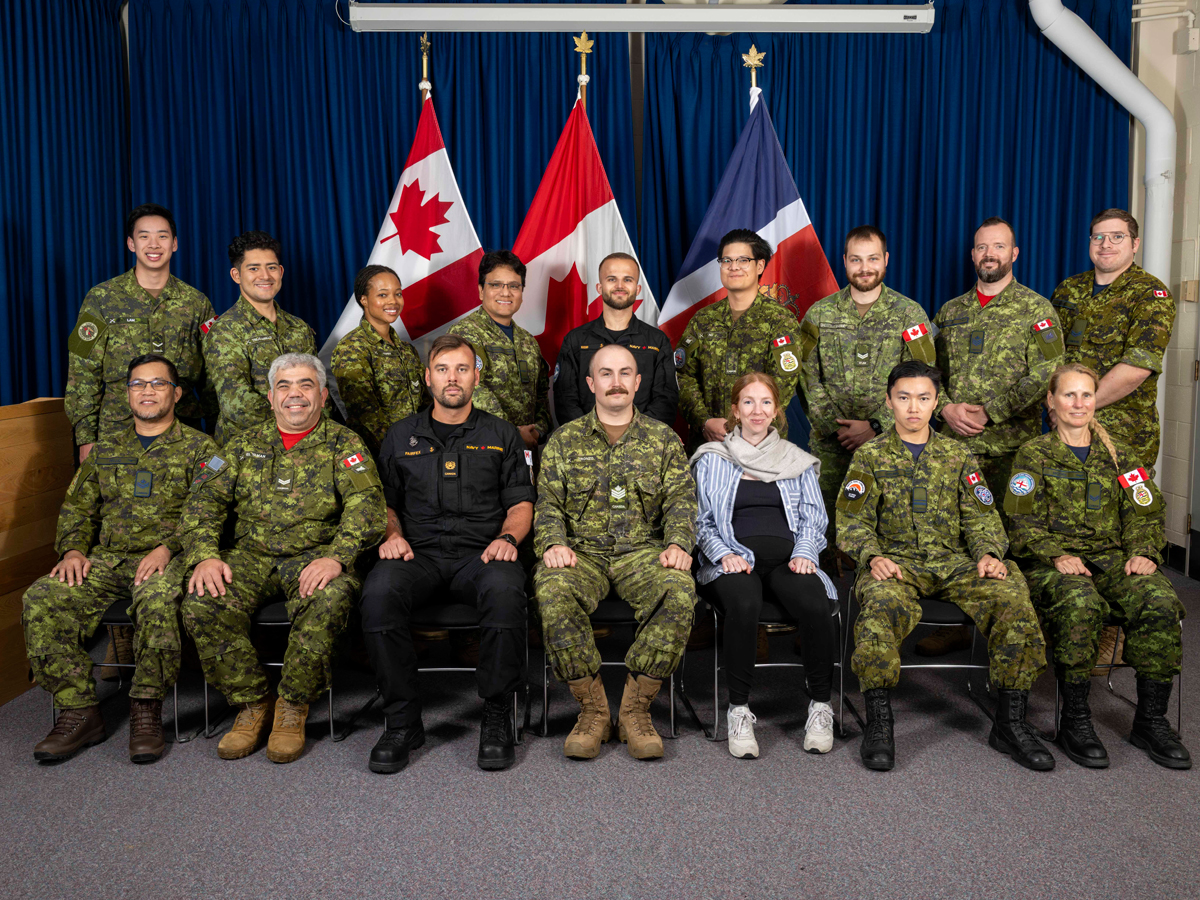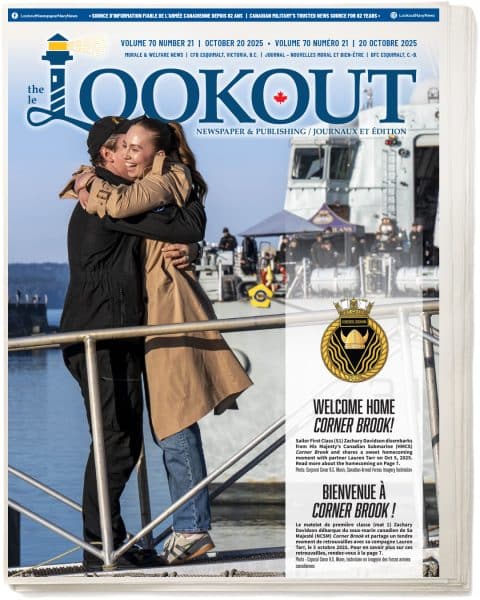
Financial Services Administrator (FSA) training as cashiers, pose for a group photo at Naval Fleet School (Pacific) N-92, CFB Esquimalt on Sept. 19. Photo: Master Sailor Valerie LeClair, MARPAC Imaging Services
CPO2 Francine Griffin, CD,
MARPAC Financial Policy & Inspections
—
Last month, 13 Financial Services Administrators (FSAs) gained the fundamental skills needed to achieve specialist qualification as cashiers. This training equips them to effectively perform essential functions in cash offices on HMCS ships and across various Canadian Armed Forces (CAF) bases.
As part of training modernization efforts, CFB Esquimalt successfully hosted the first decentralized cashier course for FSAs. Since the Chief of Defence Staff published the Reconstitution Plan in 2021, FSA trade advisors and the Military Personnel Generation Training Group have been actively implementing initiatives to address trainee backlogs and modernize training, with a focus on improving work-life balance. By decentralizing the course, we enable members to attend training locally, reducing the time spent away from home.
A Sergeant FSA from the Canadian Forces Logistics Training Centre (CFLTC) delivered the course material and ensured that all qualification standards were met. Additionally, a highly experienced FSA from the Base Comptroller (BCompt) office provided valuable insights and answered questions related to coastal and shipboard operations.
On the West Coast, FSAs occupy over 12 cashier positions within the Fleet and Formation, including ten onboard ships and two at BCompt. Typically, CFLTC conducts this course in Borden with a maximum capacity of 20 personnel. Due to the number of limited seats, accommodating West Coast members can be challenging, especially when the course is open to all FSAs across the CAF. In many cases, only two West Coast personnel are enrolled per session. In addition, those FSAs who are posted to ships may also encounter difficulties scheduling their attendance due to operational commitments.
The localized nature of this course has many advantages, including the networking potential among others they may not have known yet. This training will increase the availability of personnel who are available to assist with claims payments either on ship or at the BCompt office. Additionally, the cost of Temporary Duty is significantly reduced by sending one instructor to the location rather than transporting members to a centralized site.
This course would not have been possible without the support of the BCompt staff, who initiated and managed the logistics to make this vision a reality. We also extend our gratitude to the CFLTC staff for coordinating and providing an instructor for the ‘Best’ Coast.














